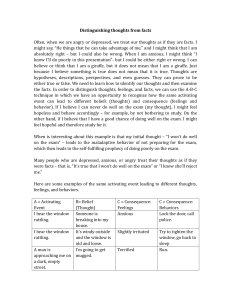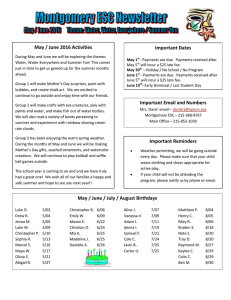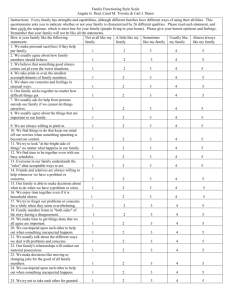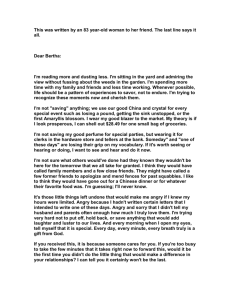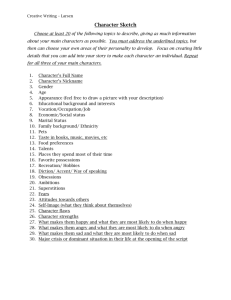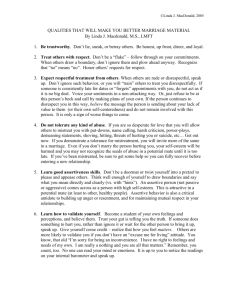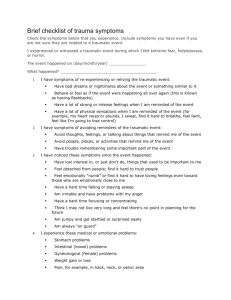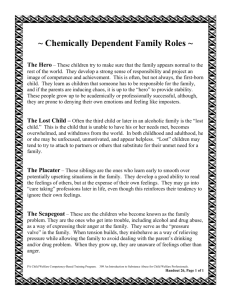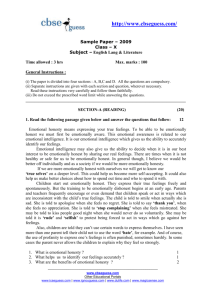Passive - William Woods University
advertisement
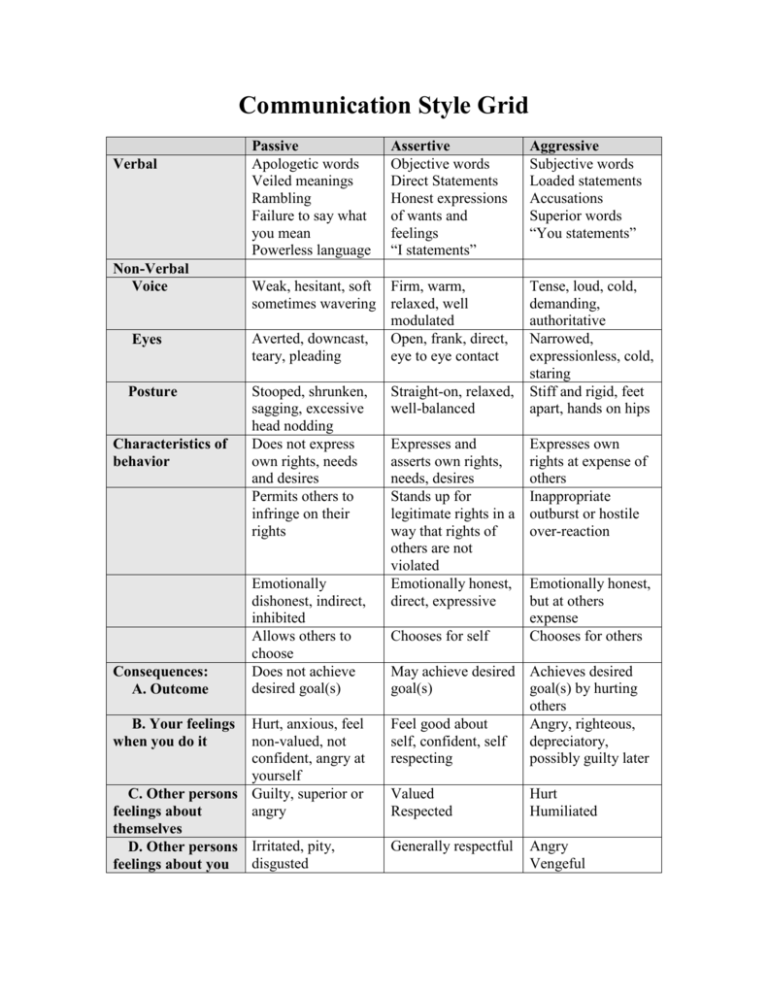
Communication Style Grid Verbal Non-Verbal Voice Eyes Posture Characteristics of behavior Consequences: A. Outcome Passive Apologetic words Veiled meanings Rambling Failure to say what you mean Powerless language Weak, hesitant, soft Firm, warm, sometimes wavering relaxed, well modulated Averted, downcast, Open, frank, direct, teary, pleading eye to eye contact Stooped, shrunken, sagging, excessive head nodding Does not express own rights, needs and desires Permits others to infringe on their rights Emotionally dishonest, indirect, inhibited Allows others to choose Does not achieve desired goal(s) Hurt, anxious, feel non-valued, not confident, angry at yourself C. Other persons Guilty, superior or angry feelings about themselves D. Other persons Irritated, pity, feelings about you disgusted B. Your feelings when you do it Assertive Objective words Direct Statements Honest expressions of wants and feelings “I statements” Straight-on, relaxed, well-balanced Expresses and asserts own rights, needs, desires Stands up for legitimate rights in a way that rights of others are not violated Emotionally honest, direct, expressive Chooses for self Aggressive Subjective words Loaded statements Accusations Superior words “You statements” Tense, loud, cold, demanding, authoritative Narrowed, expressionless, cold, staring Stiff and rigid, feet apart, hands on hips Expresses own rights at expense of others Inappropriate outburst or hostile over-reaction Emotionally honest, but at others expense Chooses for others May achieve desired Achieves desired goal(s) goal(s) by hurting others Feel good about Angry, righteous, self, confident, self depreciatory, respecting possibly guilty later Valued Respected Hurt Humiliated Generally respectful Angry Vengeful

